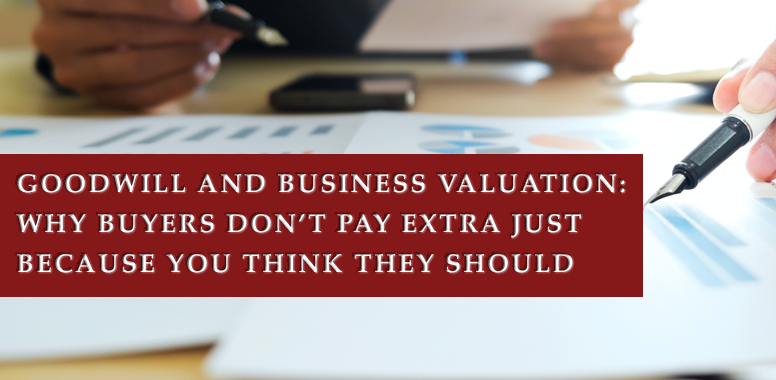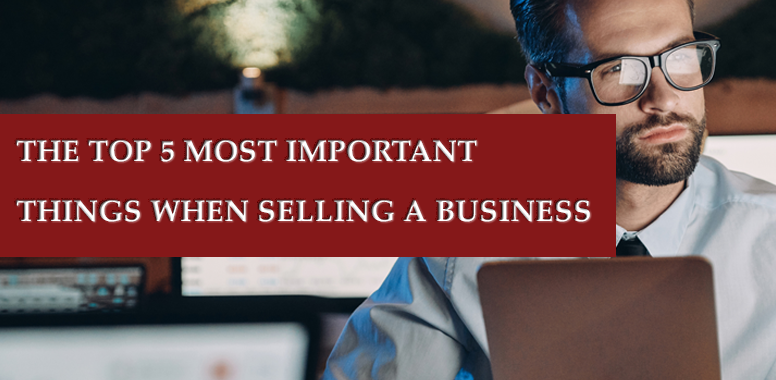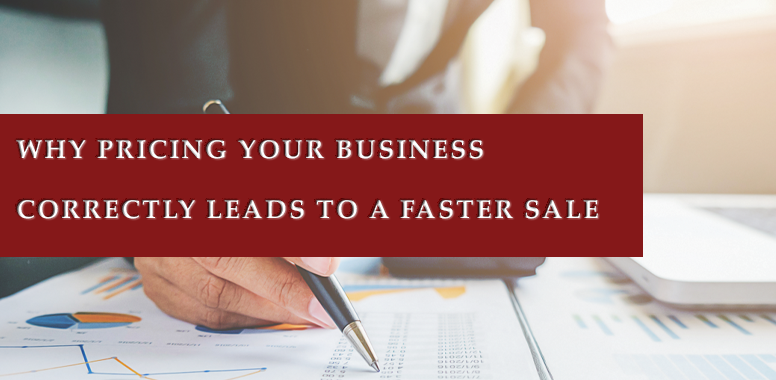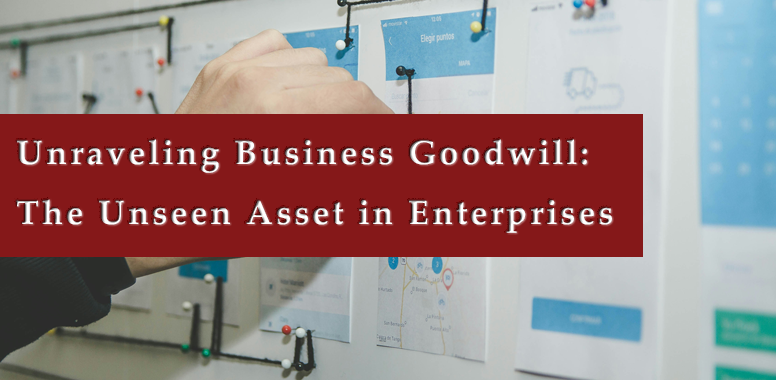OConnor Business Insights
5 Do’s and 5 Don’ts When Selling a Business
Brad O'Connor
July 11, 2025
What Every Business Owner Needs to Know Before Listing
If you're a business owner considering a sale, you're likely wondering how to get it right—and avoid the common pitfalls that can cost time, money, and peace of mind. Whether you're preparing to retire, pursue a new opportunity, or simply feel like it’s time to move on, the process of selling a business involves more than just finding a buyer.
Here are five important do’s and five avoidable don’ts to help you plan a smoother, more successful exit—and why working with a professional broker can make a meaningful difference.
DO #1: Get a Market-Based Valuation (Not Just an Accounting Estimate)
It’s natural to turn to your accountant to understand your financials—but when it comes to pricing your business for sale, market knowledge is just as important as the numbers on paper. Accountants are great at interpreting balance sheets and tax returns, but they often lack the transactional insight to understand how the market values your business.
Professional business brokers combine financial analysis with real-time market data, buyer behavior, industry trends, and comparable sales. They don’t just look at what your business earned—they assess how buyers will perceive risk, opportunity, and value. That makes a huge difference in setting a price that attracts serious interest without leaving money on the table.
DO #2: Prepare Your Business Before You Go to Market
You only get one chance to make a first impression with a buyer. Well-organized financial records, clearly documented operations, and clean facilities can make your business far more attractive.
Take the time to clean up your bookkeeping, address any legal or HR issues, and systematize your processes. Whether you’re selling a service company, a manufacturer, or a small retail operation, buyers want to see a business that runs smoothly—not one that looks like it’s held together with duct tape.
The more turnkey your business appears, the more confidence it inspires—and the better your chances of receiving strong offers.
DO #3: Protect Confidentiality
One of the biggest mistakes sellers make is sharing too much, too soon. If employees, customers, or competitors find out you're planning to sell, it can create unnecessary anxiety, risk, and even revenue loss.
That’s why maintaining confidentiality is so important. A reputable broker will help you market the business discreetly—qualifying interested parties, using non-disclosure agreements (NDAs), and controlling the release of sensitive information. This protects your business while still moving the sale process forward.
Confidentiality becomes even more critical in industries where customer trust or contract stability is key—such as professional services, healthcare, or recurring revenue models.
DO #4: Work With a Trusted Advisor
Selling a business is one of the most complex and emotionally charged transactions you'll ever be involved in. Between marketing the opportunity, screening buyers, negotiating terms, and managing due diligence, it's easy to feel overwhelmed or make costly decisions out of emotion or inexperience.
That’s where a business broker becomes your most valuable asset. Not only do they help you prepare and position your business, but they also manage the entire process—from marketing to closing—with professionalism and objectivity. Their goal is to maximize your outcome while minimizing your stress.
Think of it like selling a house—only with a lot more moving parts, and higher stakes.
DO #5: Be Selective With Buyers
Not every interested party is the right fit. Some may lack the financial means, others might be shopping for deals without a clear plan. And sometimes, the buyer who offers the highest price isn’t the one best positioned to close.
Take the time to understand who your buyer is, what their intentions are, and whether they can follow through. A broker will help with buyer qualification, financing discussions, and negotiating fair terms that work for both sides—not just in dollars, but also in timeline and structure.
DON’T #1: Wait Until You’re Burned Out
Many owners wait to sell until they’re completely burned out or their business has started to decline. While this is common, it can hurt your value and your bargaining power.
The best time to sell is when the business is still stable or growing—and you still have the energy to be involved in the process. Buyers want to step into something healthy, not something they’ll need to rescue.
If you’re thinking “I’ll sell one day,” it’s worth starting conversations now, so you’re prepared when the time is right.
DON’T #2: Try to Sell It All Yourself
Selling a business is nothing like selling a car or even a house. It involves financial due diligence, legal contracts, tax implications, and complex negotiations. Trying to manage all of this on your own can be overwhelming—and risky.
Without the right guidance, it’s easy to make costly errors, waste time on unqualified buyers, or settle for less than your business is worth. If you want to protect your investment, have someone in your corner who’s done this before.
DON’T #3: Disclose Sensitive Info Too Early
Buyers are naturally curious—but not every question should be answered up front. Sharing financials, customer data, supplier contracts, or employee rosters before a buyer is vetted and under NDA puts your business at risk.
There’s a process for how and when to disclose sensitive information. A broker will ensure that only serious, qualified buyers gain access—and only at the appropriate stage of the sale.
DON’T #4: Overlook Presentation and Perception
The way your business looks—in person and on paper—matters. Outdated branding, neglected equipment, or messy records can signal poor management, even if your financials are solid.
Invest a little time in sprucing things up. A fresh coat of paint, a clean workspace, and polished marketing materials can go a long way toward building buyer confidence.
DON’T #5: Fall in Love With the First Offer
It’s exciting to receive an offer—but don’t jump at the first one without looking at all the terms. Price is just one part of the deal. Payment structure, contingencies, financing, transition plans, and timelines all matter too.
Patience pays off. With the right advisor, you’ll be better equipped to evaluate each offer on its full merits—not just the number at the top or bottom of the page.
A Smart Sale Starts With the Right Plan
Selling a business is a major life decision, and it's worth doing right. Whether you're just starting to explore your options or already thinking “I’m ready to sell my business,” a professional business broker can help you prepare, protect your interests, and achieve a successful outcome.
Want to talk confidentially about what your business might be worth, or how to take the first step? We’re here to help.

More questions? We can help.
EVALUATION/CONSULTATION
If you are a business owner considering selling a business, and would like to learn more about OConnor Business Brokers and Consultants and the services we offer, please contact us to arrange a confidential business evaluation.
You will meet one of the Directors of OConnor Business Brokers, and your requirements will be discussed. During the meeting you will have the opportunity to find out more about selling a business, and how our business brokers and M&A Advisors can assist you with the business sale process.
Unlike many other approaches, OConnor Business Brokers start without any preconceived ideas about what is right for you and for your business. By understanding the business and your motivation we can help steer you in the right direction. This often challenges conventional thinking and comes as a refreshing change to the norm.
The Directors of OConnor Business Brokers have experience as business brokers, business consultants, M&A advisors, and business owners. We understand the challenges and pressures that face a business at any one point. We therefore use our time together not to try and sell you our services but to help you understand your options and how we can help.
An initial meeting lasts approximately one hour, and can take place virtually or in person at our office.
Evaluation and Consultation Request











